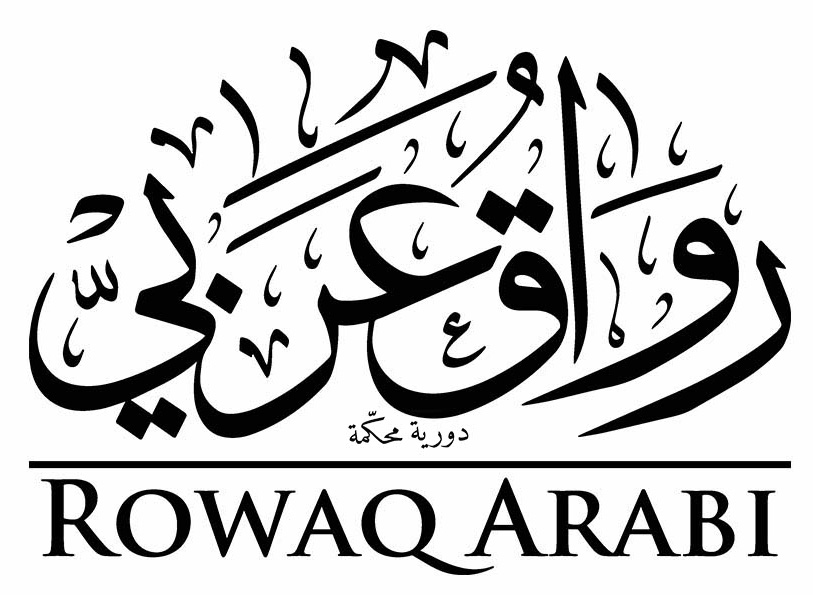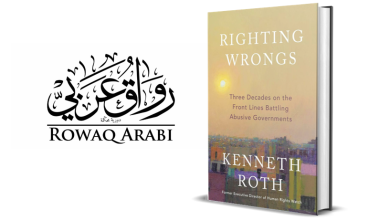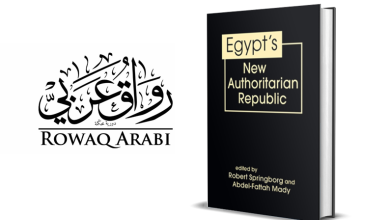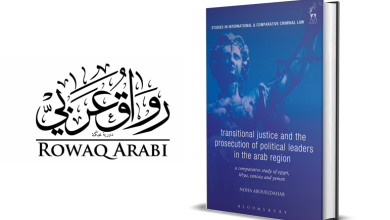Book Review: ‘Human Rights Struggles in the Twentieth-Century France’ by Max Likin

Citation: Romdhani, Messaoud. 2025. “Book Review: ‘Human Rights Struggles in the Twentieth-Century France’ by Max Likin.” Rowaq Arabi 30 (2): 26-30. https://doi.org/10.53833/MSOR3961.
Title: Human Rights Struggles in Twentieth-century France: The League of the Rights of Man and Causes Célèbres
Author: Max Likin
Publisher: Palgrave Macmillan Cham
Edition: 1
Year of Publication: 2022
E-Book ISBN: 9783031051982
France has every reason to take pride in its 1789 Revolution and its deep legacy in shaping the modern conception of human rights. The Declaration of the Rights of Man and of the Citizen was a pioneering document whose universal principles transcended French borders, inspiring political thought and reform throughout Europe and beyond. Eleanor Roosevelt, the renowned American activist and a leading architect of the Universal Declaration of Human Rights (1948), praised France as an incubator of revolutionary humanitarian ideals, recognising its ‘long and illustrious history in view of the global impact of the French Revolution.’ [1]
Nevertheless, it was only over the course of the twentieth century that human rights gradually expanded to encompass economic and social rights, humanitarianism, and international criminal justice. One organisation played a pivotal role in this evolution: the French League of Human Rights (Ligue Française des Droits de l’Homme, LDH). Born amid the Dreyfus Affair, the League faced daunting challenges from the outset — antisemitism, two devastating world wars and extremist ideologies on both the far right and the far left hostile to liberal democracy and human rights.
By using LDH as the central narrative thread, Max Likin, lecturer in History at the Freedom Educational Project Puget Sound (FEPPS), constructs in his book Human Rights in Twentieth Century-France, a compelling analysis of the evolution and contradictions of human rights discourse. His study not only traces the LDH’s pivotal role in promoting human rights within France and beyond, but also critically engages with the movement’s tensions, achievements, and shortcomings. Likin convincingly shows that the progress of human rights cannot be attributed solely to institutional actors such as LDH; rather, it was equally shaped by the initiatives of independent activists and influential intellectual figures who challenged widely accepted norms and broadened the scope of humanitarian engagement in the twentieth century.
It all started with the Dreyfus affair, a criminal justice scandal as the Jewish officer, Alfred Dreyfus, was declared guilty of passing military secrets to the Germans. It took twelve years, from 1894 to 1906 for justice to be served and Dreyfus to be cleared. Emile Zola, the famous French writer, played a key role when he penned his famous letter to the President titled ‘J’accuse.’ Zola exposed through his letter the prevailing anti-Semitic mood in French society. It must, though, be recalled that in 1789, revolutionary France was the first European country to grant citizenship to the Jewish.
Dreyfus’s case revealed something of importance: human rights are not earned in perpetuity; hence they need to be continually defended. When Zola fled to London, escaping a prison sentence, a group of ‘educated thinkers’, led by Ludovic Trarieux, a former French minister of justice, drafted the statutes of the LDH. The first Central Committee, elected in June 1898, set a remarkable precedent: it was gender inclusive. Having in mind the infamous Dreyfus case that shook France, the priority set by the LDH demanded ‘a unique justice, fighting special courts, military tribunals and police practices.’[2]
World War II marked a decisive turning point in the history of human rights. The magnitude of the atrocities committed during the conflict underscored the urgent need to establish universal norms to safeguard human dignity and prevent future global catastrophes. Drawing inspiration from the principles enshrined in the 1789 Declaration of the Rights of Man and of the Citizen, the Universal Declaration of Human Rights (UDHR) affirmed the equal and inalienable rights of all human beings, irrespective of race, colour, sex, language, political or religious belief, national or social origin, or any other status.
France contributed to this foundational document through the active participation of the French law professor and French Human Rights League, René Cassin. Cassin served on the United Nations Commission on Human Rights and co-chaired the Drafting Committee for the UDHR. His remarkable work earned him the Nobel Peace Prize in 1968.
But a country that prides itself on having a history of defending human rights cannot keep on with the colonies. The UDHR, adopted in 1948, promoted a universal set of rights for all people, contradicting the French colonial system that excluded indigenous people from their right to self-determination. While liberation movements in Madagascar, Indochina or Algeria framed their struggles as fights for freedom and human rights as they are conceived by the UDHR, the French government showed that a liberal democracy can resort to political violence and torture when facing the colonies’ urgent demands of independence.
The ‘dirty war’ in Algeria was a case in point. Damning reports and testimonies revealed that even Algerian children were not spared from torture. The arrest and rape of Djamila Boupacha (more known as Djamila Bouhird) an iconic figure of Algerian resistance and a liaison agent in the Algerian National Front (FLN), was a resounding scandal that tainted the regime of Charles de Gaulle. Intellectuals from different artistic and political backgrounds denounced the atrocities of the French military forces.
However, ‘heavyweight intellectuals’ like Jean Paul Sartre, Simon de Beauvoir, Raymond Aron or Albert Camus were not on the same wavelength concerning the independence of the colonies, they differed markedly on the origins, crimes and outcome of the conflict.’[3] Furthermore, while condemning torture and atrocities committed by the French Army in Algeria, they ‘found it hard to challenge assumptions of the superiority of the French culture.’[4]
Young lawyers engaged by the LDH entered the fray defending French Algerian victims of indiscriminate arrests in Metropolitan France. According to a confidential government report, the number of arrests among the ‘French Muslims’ between 1956 and 1959 exceeded 25,000.[5] But that number was nothing compared to what was happening in Algeria where ‘terror mechanisms evolved on a monstrous scale.’ No less than a quarter of the Algerian population had been forcibly displaced, at least one million people were being herded in camps in disastrous conditions, causing a high child mortality rate,[6] at least unknown number of prisoners were secretly detained, which facilitated their torture and disappearance.[7] The list of ‘incidents’ is long.
After the Algerian independence, France had to face ‘a domestic revolution’ against the prevailing conservative political order of Charles de Gaulles, who had been in power for ten years. The rebellion, ignited by students against government repression, escalated into general strikes involving millions of workers. Led by radical activists, the May 68 movement called for the abolition of death penalty and the end of police repression, mainly against migrants and denounced discrimination in workplaces. May 68 was also an opportunity for French women to demand their rights: equal pay and access to contraception and ‘full control over their bodies’[8]. In fact, abortion was considered by feminists ‘as a fundamental issue of self-determination.’
From the 1980s onwards, human rights activism faced two main challenges: the social gap (fracture sociale) and postcolonial disruptions (ruptures postcoloniale). Although the election of François Mitterrand was a beacon of hope for social justice, international liberalism seemed to have the upper hand. That’s why unemployment continued to rise, and social welfare gave place to ‘a revival of old-fashioned charity.’ Such social insecurity has always been a fertile ground for xenophobia and racism. Opinion polls revealed that ‘racism affects the French working class which finds that there are too many Jews, too many blacks, Portuguese, Algerians in France.’[9]
LDH struggled to resist the rising tide of neoliberalism and ‘market fundamentalism,’ finding it increasingly difficult to uphold its vision of social citizenship. Moreover, during the last three decades of the twentieth century, the defence of immigrants’ rights came to dominate the League’s activism, often overshadowing other issues of social justice. Yet, the most notable achievement of the human rights movement in France was the strengthening of parité féministe members within the LDH successfully leveraged parallel legislation across Europe to persuade the Senate to adopt the law on ‘equal access of women and men to electoral mandates and elective functions’ in July 1998.[10]
By the end of the twentieth century, the human rights movement in France set three objectives: continue the struggle for equal rights within the country, work on international humanitarianism to save lives in no-law zones, and pursue the crimes against humanity committed during the occupation through international mechanisms. In the aftermath of the Second World War, France De Gaulle and the communists imposed the heroic narrative of the resistance, while forgetting about the horrific crimes committed by collaborators. So, measures should be taken to restore justice to the victims. The LDH spared no efforts to coordinate efforts along with Resistance groups and victims’ relatives to spin out trials of Nazi’s henchmen such as Klaus Barbie, Maurice Papon or Paul Touvier.
At the same time, genocides and mass atrocities in various parts of the world — notably in Rwanda and the former Yugoslavia — underscored the urgent need for an international human rights mechanism to end impunity and ensure accountability. On 7 July 1998, the United Nations Conference in Rome established the permanent International Criminal Court (ICC) to prosecute four major crimes: genocide, crimes against humanity, war crimes, and the crime of aggression. In this process, the LDH, together with other human rights organisations, played a significant role.
To sum up, the book offers a comprehensive examination of the evolution of human rights in France, beginning with the Dreyfus Affair at the turn of the twentieth century. It highlights the leading role of the Ligue des Droits de l’Homme (LDH) both within France and on the international stage. The LDH’s engagement extended from combatting antisemitism, gender inequality, and xenophobia to addressing issues related to migration. Moreover, the organisation played a significant role in shaping major international instruments such as the Universal Declaration of Human Rights and in supporting the establishment of the International Criminal Court, thereby contributing to the global fight against impunity. Although the book is quite interesting from a historical point of view, there are certain issues that the writer did not detail, like the ambiguous position of the LDH concerning the right of colonies to independence. In fact, ‘the LDH did not take into account the collective right of a people to self-determination.’[11] mainly during the 1930s. Instead, it promoted a form of ‘democratic colonisation’ that recognised only the individual rights of the indigenous populations.[12]
AI Assistance Statement
I used the AI tool ChatGPT in translating some sentences from French to English.
[2] Ibid., 15.
[3] Ibid., 140.
[4] Ibid.
[5] Ibid., 144.
[6] Ibid., 145.
[7] Ibid., 146.
[8] Ibid., 168.
[9] Ibid., 185.
[10] Ibid., 195.
[11] Ligue des droits de l’Homme. “Colonial and Postcolonial History, Peoples’ Rights or ‘Democratic Colonization’: The LDH and the Colonial Problem.” [Histoire coloniale et postcoloniale, droits des peuples ou « colonisation démocratique] Ligue des droits de l’Homme, 29 August 2004. https://www.ldh-france.org/histoire-coloniale-et-postcoloniale-droits-des-peuples-ou-colonisation-democratique-la-ldh-et-le-probleme-colonial.
[12] Ibid.
Read this post in: العربية





